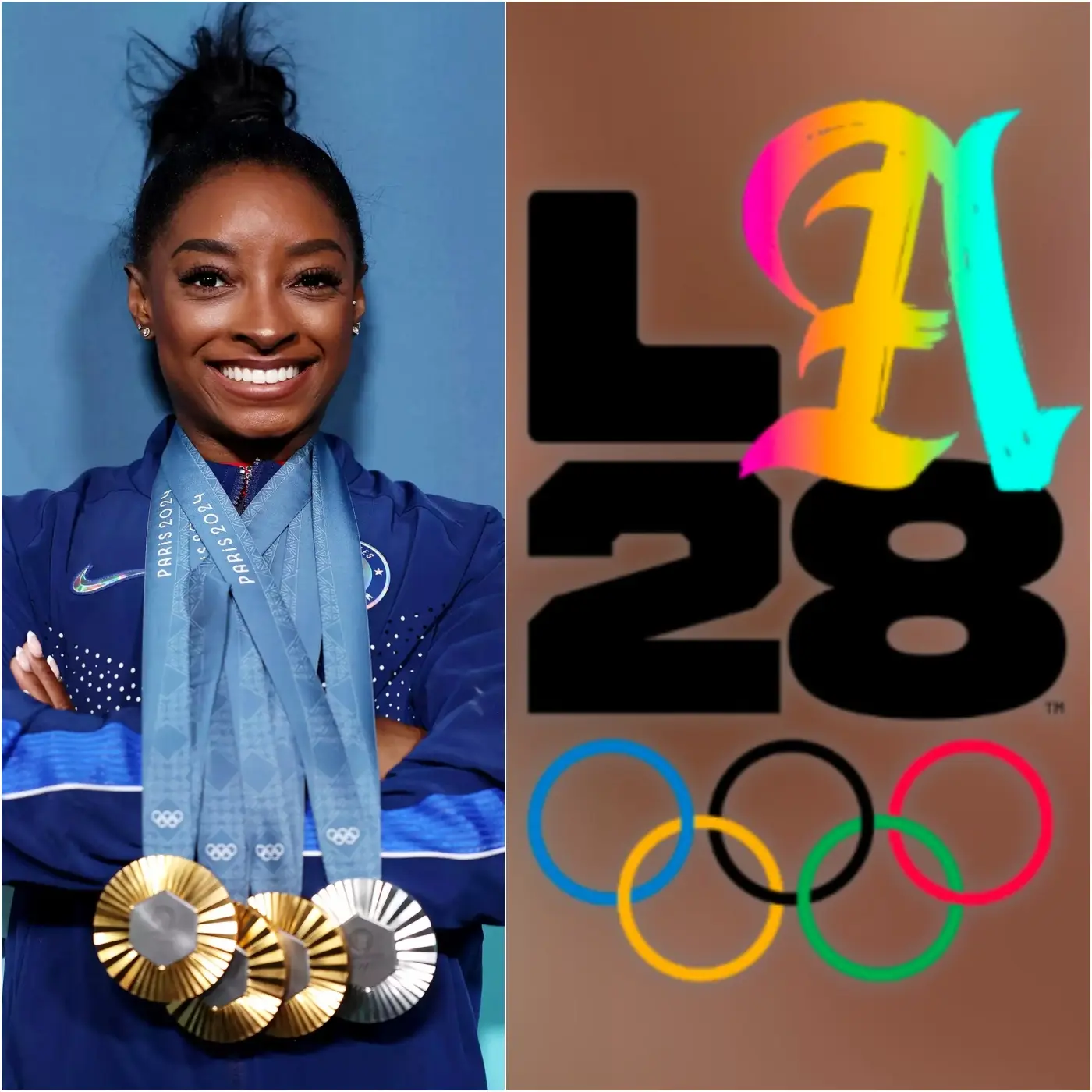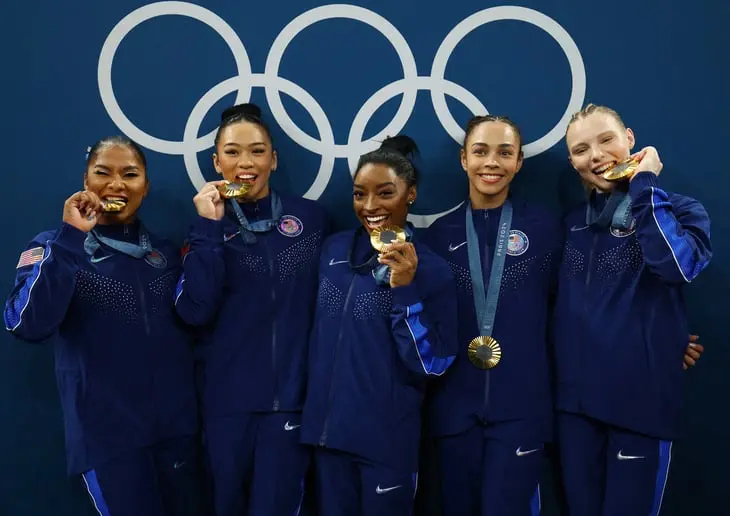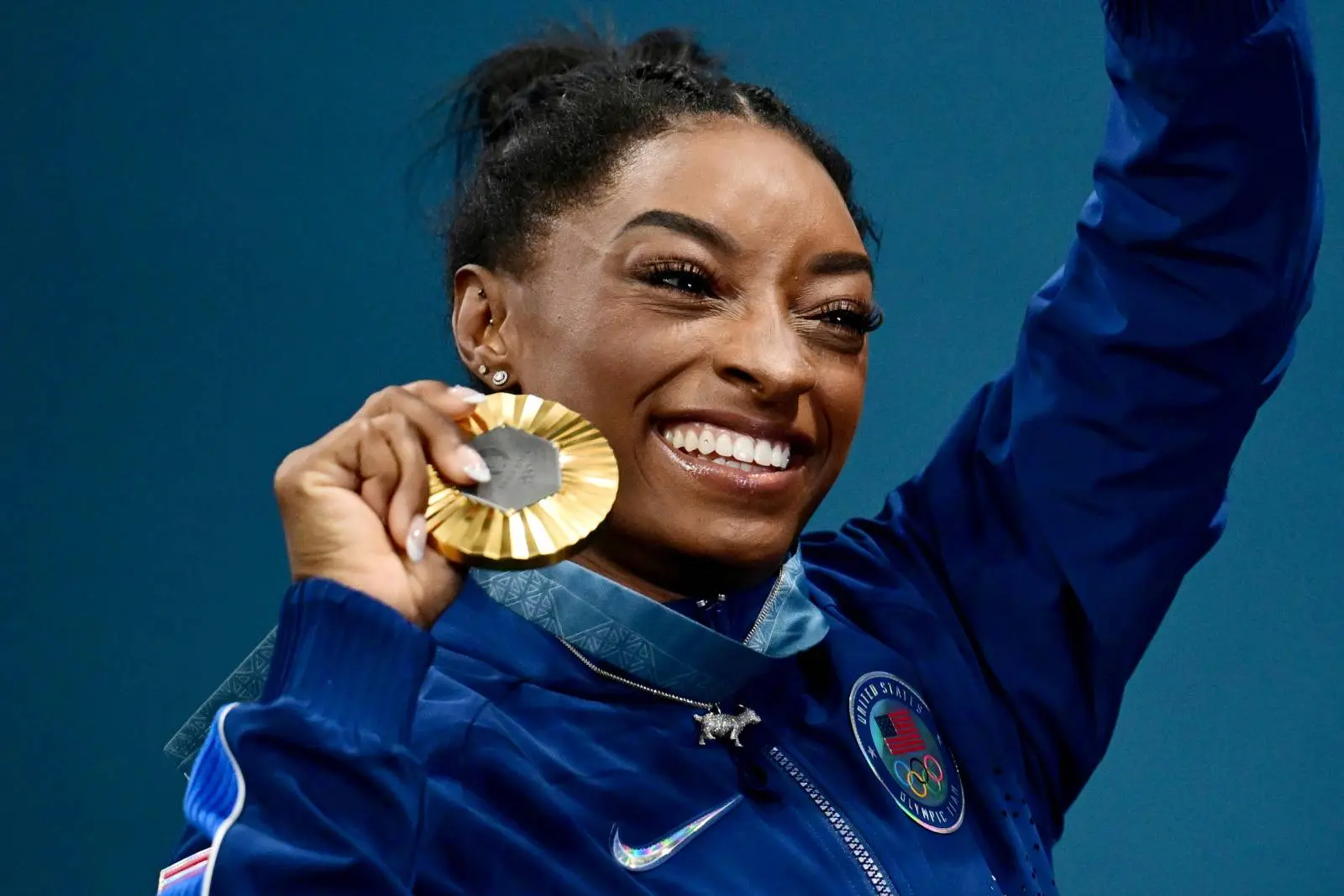Simone Biles, the gymnast who has redefined what’s possible on a four-inch beam, recently dropped a statement that sent ripples through the sports world. In a candid moment, she called the idea of competing at the 2028 Los Angeles Olympics “greedy,” adding that there’s “almost nothing left to do.” The words landed like a perfectly stuck landing—quiet, controlled, and impossible to ignore. For a woman who has collected 11 Olympic medals and 30 world championship medals, the confession feels less like retirement talk and more like a philosophical pivot. Yet the intrigue lingers: could the greatest of all time truly walk away at 31, or is this the calm before another gravity-defying comeback?

The remark surfaced during a relaxed chat on the “Call Her Daddy” podcast, where host Alex Cooper nudged Biles about future Games. “I think it would be greedy to go back,” Biles replied, her tone matter-of-fact. She elaborated that after dominating three Olympic cycles, the hunger for more hardware has faded. The numbers back her up—seven Olympic medals in Paris alone pushed her past Shannon Miller as the most decorated American gymnast in history. When you’ve already invented moves named after you (the Biles on floor, the Biles II on vault), what frontier remains unconquered?
Still, the word “almost” in her phrasing leaves a crack in the door. Gymnastics fans know Biles thrives on defying expectations. She withdrew from multiple events in Tokyo 2020 to protect her mental health, then returned in Paris 2024 to claim three golds and a silver, proving resilience can be its own superpower. The 2028 host city adds another layer of temptation. Los Angeles, with its Hollywood lights and hometown energy, would mark a poetic full circle for the Texas native who trains just a short flight away. Imagine the roar inside Crypto.com Arena if she stuck one final vault. The possibility, however slim, keeps the conversation alive.
Coaches and peers sense the internal tug-of-war. Cecile Landi, who guided Biles through the Paris triumph, told reporters that her star pupil still flips with the same explosiveness that stunned judges a decade ago. “Her body is capable,” Landi said, careful not to push. Former teammate Aly Raisman offered a different angle, praising Biles for prioritizing life beyond the chalk dust. “She’s earned the right to choose peace,” Raisman posted on social media, a sentiment echoed by thousands of followers who flooded comment sections with heart emojis and pleas to “do whatever makes you happy.”

Mental health, the invisible opponent Biles once named “the twisties,” remains a decisive factor. She has spoken openly about therapy sessions that keep her grounded. Returning for a fourth Olympics would mean another four-year cycle of scrutiny, travel, and pressure-cooker expectations. At 31, she would be the oldest American female gymnast to compete since the 1950s. The physical toll is real—tendinitis, bone spurs, and the cumulative wear of landing skills that generate forces up to 15 times body weight. Yet Biles has rewritten aging narratives before. When she won the 2023 world all-around title at 26, critics who claimed she was “past her prime” ate their words.
Outside the gym, new chapters beckon. Her wedding to NFL safety Jonathan Owens in 2023 sparked joy across headlines. The couple’s shared athletic pedigree—Owens plays for the Chicago Bears—creates a power duo that brands are eager to court. Biles has already launched a clothing line, authored a children’s book, and partnered with mental health platforms. Forbes estimates her net worth north of $20 million, a cushion that removes financial urgency. Why risk another stress fracture when you can build an empire on your own terms?
The gymnastics community, meanwhile, braces for a post-Biles era. USA Gymnastics executive Li Li Leung admitted the sport’s visibility hinges heavily on its supernova. “Simone brings eyes that no one else can,” Leung said at a recent press conference. Emerging talents like Konnor McClain and Kaliya Washington show promise, but replicating Biles’ blend of power, precision, and personality feels generations away. The 2028 team trials could look dramatically different without her name on the roster.
History offers precedents for late-career returns. Oksana Chusovitina competed at age 46 in Tokyo, earning standing ovations for sheer longevity. Biles, however, operates on a different plane. Her skills carry difficulty scores that younger athletes scramble to match. A single competition absence doesn’t erase muscle memory honed since age six. If she chose to defend her Paris titles, bookmakers would install her as favorite before she even confirmed entry.

Public reaction splits neatly into camps. Die-hard fans launch petitions urging her to reconsider, while wellness advocates celebrate the boundary-setting. One viral tweet summed up the divide: “Let the queen rest, but also let her change her mind if she wants.” The discourse mirrors broader conversations about burnout in elite sports, where athletes increasingly reclaim agency over their narratives.
Biles herself seems to relish the ambiguity. Days after the podcast episode, she posted an Instagram story of herself tumbling in the gym, captioning it with a winking emoji. Was it routine training or a subtle hint? The internet dissected every pixel. Her husband weighed in during a radio interview, laughing that “Simone does what Simone wants.” The non-answer fueled speculation further.
Four years is an eternity in gymnastics years. Injuries heal, rules evolve, and motivation ebbs and flows. The Los Angeles Organizing Committee has already floated ideas for a Biles-themed opening ceremony moment, recognizing her marketability. NBC, which saw record ratings during her Paris events, would surely clear prime-time slots. Corporate sponsors hover, ready to reactivate seven-figure deals at the first sign of commitment.
Ultimately, the decision rests in a quiet gym in Spring, Texas, where chalk clouds still rise around a 4-foot-8 frame that has carried a nation’s dreams. Biles told Cooper she feels “content,” a word rarely uttered by competitors mid-career. Contentment, though, doesn’t preclude curiosity. What if one more routine, one more roar, one more medal ceremony could scratch an itch she hasn’t fully named?
The gymnastics world holds its breath, not out of greed, but out of reverence for a career that keeps surprising us. Whether Simone Biles laces up her grips in 2028 or cheers from the stands, her legacy is sealed. The only question left is how she chooses to write the final chapter—and whether “almost nothing left to do” leaves room for one last impossible feat.






